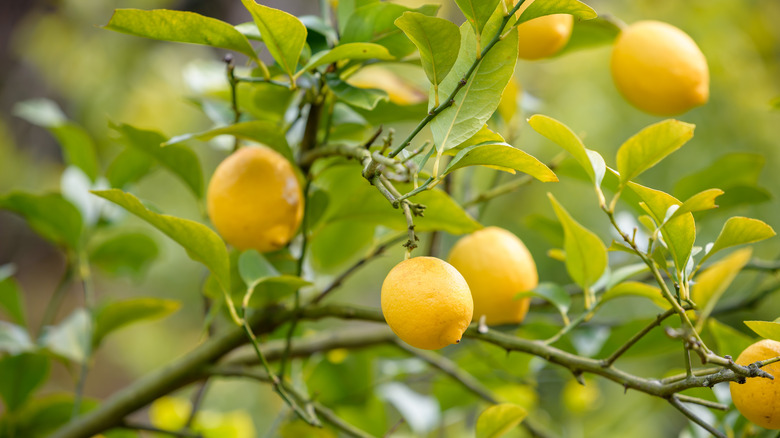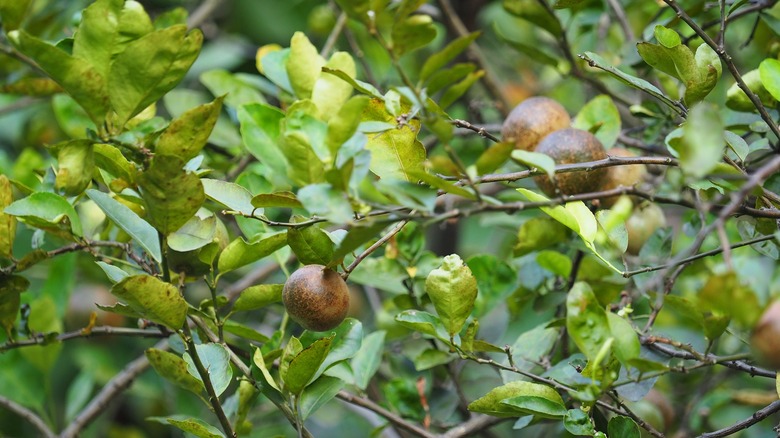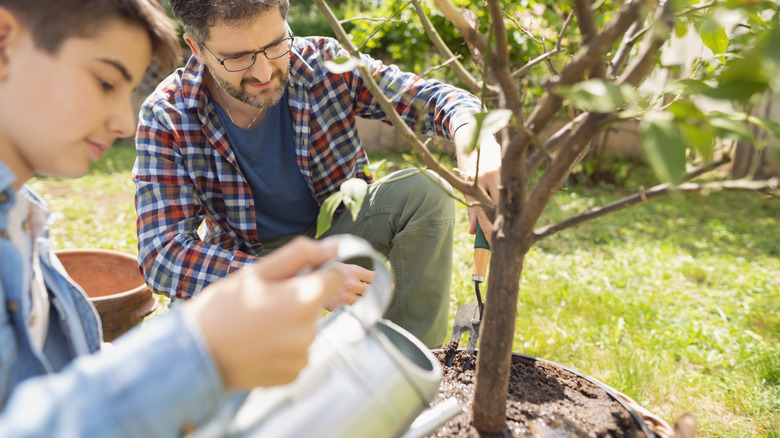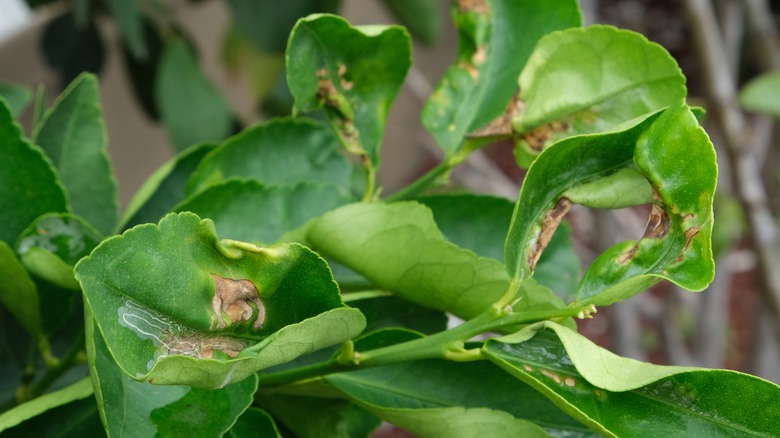Why That Lemon Tree Is Struggling In Your Garden
Lemon trees are a popular choice for home gardeners due to their fragrant blossoms and tangy, delicious fruit. However, it's not uncommon to make mistakes when growing lemon trees in the garden. There are a few reasons why a lemon tree just may not be growing well including inadequate sunlight, improper watering, nutrient deficiencies, and pests.
An unhealthy lemon tree may exhibit a range of signs, including yellowing or dropping leaves, slow growth, and thin or sparse foliage. When you go to harvest lemons you may notice that the tree produces fewer of them or maybe none at all, or the fruit may be misshapen or taste bitter.
Sometimes lemon trees just need more sunlight. They require a minimum of six to eight hours of direct sunlight per day to grow and produce fruit. Inadequate sunlight can cause the tree to produce less fruit. You can try to remove any branches that are shading the tree or blocking sunlight to help maximize the amount of sunlight reaching the tree's foliage. However, to ensure your lemon tree receives enough sunlight, it may be necessary to move the tree to a sunnier location.
Improper watering
A big mistake when watering your garden and one of the most common reasons for a lemon tree's stunted growth is improper watering. Lemon trees require consistent moisture, and if they are not receiving enough water, they may not be able to access the necessary nutrients for healthy growth, and leaves may appear brown, wilting, and fall off prematurely. The fruit may also be brown, small, and shriveled up. Too much water can cause the leaves to turn yellow and droop. You may also notice the fruit is split. Overwatering can lead to root rot.
To ensure your lemon tree receives the right amount during the growing season, water it once a week and water it deeply. Newly planted trees need to be watered more frequently, about two to three times a week. Lemon trees prefer deep, infrequent watering to shallow, frequent watering. When the tree is dormant, water it less.
Make sure to adjust the watering frequency based on the weather. In hot, dry weather, you may need to water more frequently. In cooler, wetter weather, reduce the frequency to prevent overwatering. You can check the soil moisture with your finger to gauge its mature level. If the top inch of soil feels dry, it's time to water.
Nutrient deficiencies
Nutrient problems are a common reason why lemon trees may not be growing well. Lemon trees prefer well-draining soil that is rich in organic matter and nutrients. If the soil is poor quality or lacking in nutrients, the tree may not get the necessary nutrients needed for healthy growth. Though a balanced diet of nutrients is required for lemon trees to grow well, nitrogen is key. Trees that are insufficient in nitrogen can exhibit yellow leaves, and the issue can be remedied by applying fertilizer. However, too much nitrogen can invite pests to take up residence on your tree.
Additionally, lemon trees prefer a soil pH of 5.5 to 6.5. If the soil pH is too high or too low, it can affect the tree's ability to absorb nutrients and can cause nutrient deficiencies. A pH above 7 can lead to iron deficiency. To address soil and nutrient problems, it's important to have your soil tested to determine its structure and nutrient content. Based on the results, you can adjust your soil's pH and add organic matter and nutrients as needed.
Pests on your lemon tree
Sometimes the cause of your lemon tree's decline comes from outside forces. Pests can greatly affect the health and growth of your lemon tree. Lemon trees are susceptible to a range of pests, including aphids, mealybugs, and spider mites.
The most common pests that can affect lemon trees harm the tree by stealing its sap. Aphids and mealybugs are small insects that can cause damage to lemon trees by sucking sap from the leaves and stems. Similarly, spider mites are tiny, spider-like insects that do the same. The best way to prevent pest infestation is to keep your tree healthy. When it encounters drought, nutrient deficiency, and over-fertilizing, it is more likely to become infested with pests.
When facing a pest problem, your first line of offense is to spray them right off the leaves with a hose. You can also use insecticidal soap or neem oil to keep them away. It's important to monitor your lemon tree regularly and take action as soon as you notice pest activity. Use organic pest control methods whenever possible and remove any infected branches or leaves to prevent the spread of disease.



